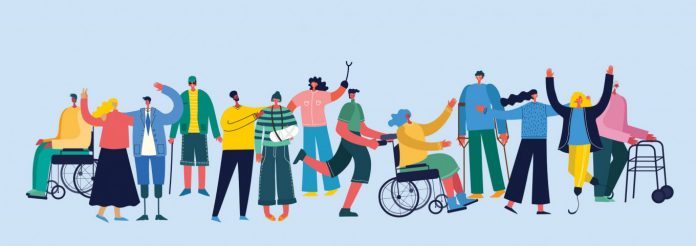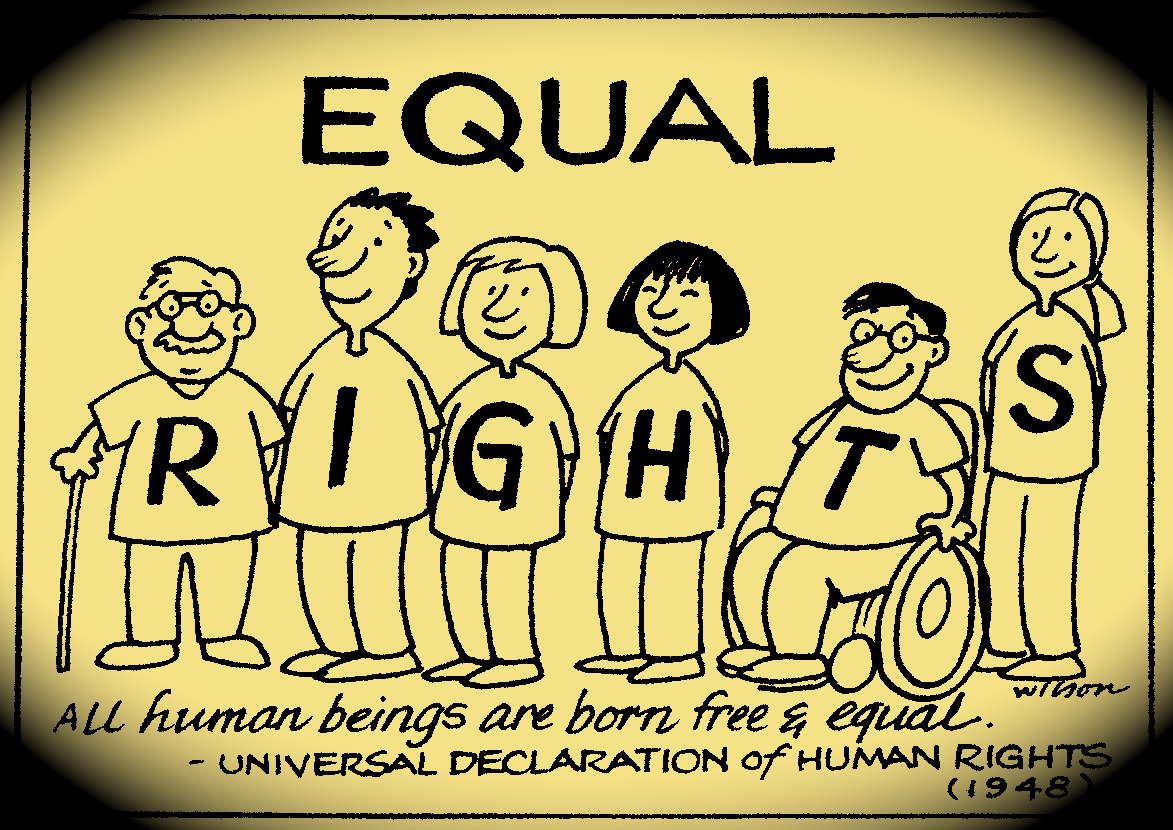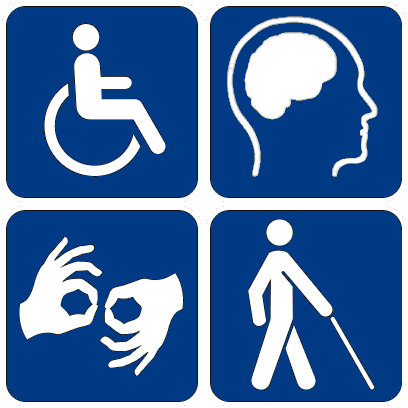This article is written by Pranav Sethi, from SVKM NMIMS School of law Navi Mumbai. This article analyzes disabled people’s opportunities and protection of their rights in an egalitarian society.
Table of Contents
Introduction
My advice to other disabled people would be
Concentrate on things your disability
Doesn’t prevent you from doing well, and don’t regret
The things it interferes with.
-Stephan Hawking
The persons with disabilities (Equal opportunities, protection of rights, and full participation) Act 1995 came into force on 7 February 1996. In a country like India where the population of disabled people is immense, and there’s a scarcity of resources to make sure that disabled people aren’t getting neglected of their rights and equal opportunities, such an Act came into force by the government of India. The Act provides for both deterrence and progressive features of reformation for education, employment, rehabilitation of persons with a disability, special insurance schemes, the establishment of research and vocational training institutes to enhance all-round development, creation of an accessible environment where they can function as productive members of society.
Concept of the Act
The state has a responsibility to safeguard the rights of disabled people and nurture them in an environment that provides opportunities for skill development which can further help them in building confidence and helps in their survival. They have to create a barrier-free environment that helps them grow and explore new fortunes and ventures:
- The Act aims to restrain any situation of abuse and exploitation of persons in areas of medical care, education, job, special schemes by the government, etc.
- It also makes special provisions for the incorporation of persons with various NGOs (non-governmental organizations) and disabilities in society have acceptance.
- The act also upholds equality before the law and equal protection of laws within India (Article 14).
- Equality of opportunity in matters of public employment (Article 16).
- Article 41, which directs the state to ensure the people within the limit of economic capacity and development, right to work, right to education, and to public assistance in certain cases.
Prevention and early detection of disabilities
The Central government, state government, and local authorities together have to implement certain steps to prevent any occurrence of disabilities within their jurisdiction and not surpassing economic limits of others territory, they undertake surveys, investigations, and research, promote various methods of preventing disabilities and take measures for prenatal, perinatal, postnatal care of child and mother. They conduct tests for all children at least once a year to identify ones who have the probability of being inflicted from a disability.
They create awareness among people through advertisements, radio shows, posters, social media platforms; visiting preschools, health care centres, and Anganwadi workers to have a better reach to the public about the causes of disabilities and the preventive measures that have to be taken. Adding more to this, they take the initiative to train staff at the primary health centres and in dispensaries.
Education
The government and local authorities ensure to promote special schools being set-up in government and private sectors at affordable rates for those in need of special education, in such a manner that children, even if living in remote or rural areas, get accessibility to such schools and learning doesn’t stop for them. They aspire to equip the special schools for children with disabilities with vocational training facilities that are directed towards generating employment for them and making them self-reliant. So, till the age of 18 years, every child with a disability has the freedom to study in a free education environment. (CH V)
The officials or non-governmental agencies assist the government by providing them with the purpose to redesign and develop new assistive devices, teaching aids, special teaching materials such as new generation smart boards to provide disabled children’s equal opportunity to learn. Appropriate government bodies take the task of training institutions and facilitate the national institutions by teachers’ training programs focusing specifically on disabilities so that they have empathetic communication towards special children’.
Preparation of a comprehensive education scheme to provide transport facilities or alternatives so that parents or guardians permit children with disabilities to attend schools, grants for scholarships to prestigious students, suitable changes in the pattern of examination system to eliminate purely mathematical oriented exams for the advantage of visually challenged students and restructuring in the curriculum of students with hearing impairments; providing them option to choose only one language as part of their syllabus. Imparting education through open schools or open universities and providing every child with a free variety of equipment and books that help them in completing their education.
Employment
- Reservation of posts – All governments have to mandatorily appoint in every establishment at least 3 per cent of vacancies for persons with disability out of which 1 per cent is reserved for blind or low vision, hearing impairments, locomotor disability, or cerebral palsy.
- Vacancies lined up to be carried forward- during the recruitment process of any year if the vacancy is not being filled by a suitable disabled person under section 33, due to certain reasons then that vacancy is gonna be added on to the next year, if not again due to absence of particular person further can be filled substituted by any person in falling under the three categories. (CHVI)
- Schemes for ensuring the employment of disabled people- revolves around the training and welfare of persons with disabilities, relaxation of upper age limit, regulations of employment, health and safety measure environment where a disabled person can get expected to be employed and constituting the officials responsible for the administration of the scheme.
- Reservation in education and poverty alleviation scheme- all government educational institutes and authorities have to mandatorily reserve at least 3 per cent seats and alleviation schemes respectively, for people falling under the disabled category.
Affirmative action
Increasing the representation of disabled persons as important members of society involves preferential allotment of lands and schemes to provide aids and appliances to persons with disabilities. The preferential allotment consists of the establishment of special schools where they are provided with teaching faculty who can facilitate them in their communication, research institutes, entrepreneurship skills displayed by people with disabilities, setting up of houses and businesses.
Non-discrimination
In terms of government jobs, disabled people should not be denied promotion on grounds of their physical or mental capacity in any establishment on grounds of the work carried out by them and the conditions they are exposed to. No establishment can demote any employee of its organization if that person acquires a disability during their tenure. Adding to that, the person if acquires any disability then, in that case, one of the alternatives provided is that they may be shifted to some other position with the same salary benefits and perks.
To avoid discrimination on the road and environment, that local authorities ensure to make aware of symbols of disability especially the warning signals at applicable places such as engraving on railway platforms and the surface of zebra crossing facilitates people with low vision or blind persons. Installation of auditory signals at traffic lights will be an advantage for persons with visual impairment; it might help them in directions or while crossing roads. Moreover, braille symbols and auditory signals in elevators or lifts will be helpful in terms of their travelling, and ramps in public buildings, hospitals, rehabilitation centres will have a good effect on their daily lifestyle.
Research and manpower development
To ensure that in the area of research and manpower disabled people have equitable access, numerous financial benefits are issued to universities for taking the initiative forward in alliance with public officials and non-governmental research institutions. This helps disabled people in equipping them with certain skill sets that they might perform well and the responsibility of research on rehabilitation and manpower development is a prominent step taken. Research on the prevention of disability, job identification in various areas, developing a report and in-depth analysis of assistive devices adding to the psycho-social aspects will help them in becoming self-reliant and will not deny them opportunities in the research area.
Social security
The government officials in co-operation with local authorities together undertake rehabilitation programs by providing funds and sponsorship to non-governmental organizations working for the welfare of persons with disabilities and while formulating policies they also seek advice from them to have better highlights on issues faced by disabled people. The government provides unemployment allowance by framing a scheme that considers persons registered under the special employment exchange for more than 2 years. Formulating insurance schemes or security schemes help disabled people in getting away from the setbacks of financial problems that might cause a disturbance in their daily life activities.
Grievance redressal
To ensure that disabled people aren’t being neglected in society and if they aren’t being provided with any schemes or there is a gross violation of their rights in their jurisdiction then, in that case, they may move an application to public officials like chief commissioner for persons with disabilities in the centre or to the commissioner for persons with disabilities in the states. The staff provided for the service of disabled persons shall be deemed to be public officials of the Indian penal code section 21 (45 of 1860).
There might be cases of some people who may take advantage of certain schemes fraudulently which shall result in the punishment with imprisonment for a term which may extend to 2 years or with fine or both. Also, regular reports are submitted by public officials to central and state governments.
Landmark cases
Deaf Employees Welfare Association Vs Union Of India
This case was about the transport allowance provided to the employees with a hearing impairment which was significantly lower than the allowance granted to the employees with other disabilities. A petition was filed seeking a writ of mandamus giving directions to the central and state government to grant equal transport allowance suffering from hearing impairment similar to allowance being given to bling persons and other disabled people.
The court held that “there cannot be further discrimination between a person with disability of ‘blindness’ and a person with disability of ‘hearing impairment’. Such discrimination has not been envisaged under the Disabilities Act”. It held that equality of law and equal protection of laws were made to be available to all persons with disabilities while participating in facilities being provided by the government. The court held that the dignity of persons with hearing impairments must be taken into account and should not be infringed; the assumption of hearing or mute person is suffering lesser than the visually impaired person is, in effect, marginalizing them and both of them must be in the same pedestal stone and any move made further will result in consonance with the principles of Article 14.
Government Of India Vs Ravi Prakash Gupta
In this case, the petitioner was the government of India and the respondent was a visually challenged person who appeared for the civil services exam and he was ranked successfully in the merit list Sl. No. 5 but wasn’t provided with any appointment. The respondent even went to the central administrative tribunal that refused his application and further he approached the high court where it was directed to the government to include the respondent as part of merit list, against which the state filed an appeal in the supreme court, the state in response replied the post for which the respondent was applying was not falling under the reserved category for disabled people and the government could not make the reservations for the same.
The supreme court denied the state government’s claims on grounds of identification of a job which is a prerequisite requirement for reservation and appointment under section 33 of the Act. The court held,
“It is only logical that, as provided in section 32 of the act, posts have to be identified for reservation for the purposes of section 33, but such identification was meant to be simultaneously undertaken with the coming into operation of the act to give effect to the provisions of section 33. The legislature never intended the provisions of section 32 of the Act to be used as a tool to deny the benefits of section 33 to these categories of disabled persons indicated therein. Such a submission strikes at the foundation of the provisions relating to the duty cast upon the appropriate government to make appointments in every establishment.”
Union Of India Vs National Federation Of Blind
In this case, there was an appeal from the decision of Delhi high court wherein public interest litigation had been filed that sought to implement section 33 of the Act alleging that the appellants have failed to provide reservation for blind and low vision people and they have been excluded from the process of recruitment to the government posts.
The court analyzed the calculation of 3% reservation on grounds of whether it refers to cadre strength or the number of vacancies. They also observed: “it is clear that while section 33 provides for a minimum level of representation of 3 per cent in the establishments of appropriate government, the legislature intended to ensure 5 per cent of representation in the entire workforce within the public as well as the private sector”.
Conclusion
Despite the Acts that have been implemented in various states through bold judicial and political decisions there remain certain challenges to it, in some cases, state governments are sometimes answerable for the counter-arguments and not able to perform their responsibilities. Even NGOs, pressure groups, advocacy groups have worked hard to spread awareness about the Act, still, active participation of disabled people is important for the movement. In the case of Government of India vs Ravi Prakash Gupta, lead the way forward towards litigation for implementation of the rights of disabled people successfully. We all must ensure that disabled people live in a Non-discrimination, barrier-free environment where they are considered to be prominent members of society, the Act must be enforced with integrity towards the nation getting united.
References
- https://cis-india.org/accessibility/blog/summary-of-judgments-on-disability-rights
- http://legislative.gov.in/actsofparliamentfromtheyear/persons-disabilities-equal-opportunities-protection-rights-and-full
- http://www.legalserviceindia.com/articles/dab.htm
- https://dredf.org/legal-advocacy/international-disability-rights/international-laws/india-persons-with-disabilities-act/
- https://wecapable.com/disability-quotes-inspiring-words/#
LawSikho has created a telegram group for exchanging legal knowledge, referrals and various opportunities. You can click on this link and join:
 Serato DJ Crack 2025Serato DJ PRO Crack
Serato DJ Crack 2025Serato DJ PRO Crack











 Allow notifications
Allow notifications


